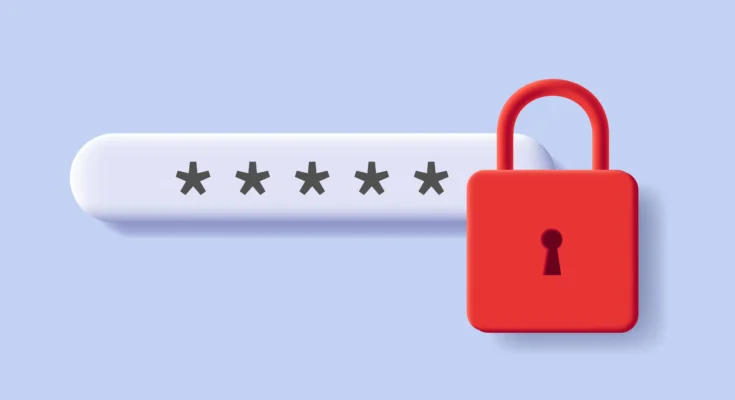In the labyrinth of the digital age, safeguarding personal privacy has ascended to a paramount concern. With the omnipresence of online platforms and the ceaseless exchange of personal data, individuals are increasingly seeking fortified mechanisms to preserve their confidentiality. This surge in awareness has catalyzed the proliferation of privacy applications—technological bastions designed to empower users with control over their digital footprints. This discourse delves into the premier privacy applications of 2024, elucidating their indispensable role in contemporary online security.
What Constitutes a Privacy Application?
At their core, privacy applications are sophisticated software tools engineered to amplify the security and discretion of online interactions. They integrate functionalities such as data encryption, anonymous browsing, ad filtration, and credential management to shield users from unauthorized intrusions—be it by cyber adversaries, intrusive marketers, or governmental oversight.
Attributes of a Robust Privacy Application
Selecting an apt privacy tool requires meticulous scrutiny of its capabilities. Key attributes include:
Data Encryption
A stalwart privacy application employs advanced encryption protocols to secure user data, rendering intercepted information indecipherable without access to a decryption mechanism.
Privacy-First Browsing
Integrated browsers within these tools are designed to thwart digital surveillance, obliterating trackers and minimizing cookie-based profiling.
Ad-Blocking Mechanisms
In addition to eliminating intrusive advertisements, effective ad-blocking mitigates exposure to malicious content often masquerading as legitimate promotions.
Credential Management
Comprehensive password management ensures the creation, storage, and retrieval of robust, unique access keys across myriad platforms.
Exemplary Privacy Tools of 2024
Several privacy applications stand out for their efficacy and usability. Among them:
- ExpressVPN
A top-tier Virtual Private Network (VPN) service, ExpressVPN combines formidable encryption, lightning-fast connectivity, and an intuitive interface. Its extensive server network enables anonymous browsing and circumvents geo-restrictions. - Signal
Esteemed for its commitment to secure communications, Signal employs end-to-end encryption, ensuring that only intended participants can decipher exchanged messages. - DuckDuckGo Privacy Browser
This browser champions anonymity, blocking trackers and concealing users’ online behaviors. Embedded encryption fortifies user search activities and browsing sessions. - LastPass
An indispensable password management solution, LastPass facilitates the generation and secure storage of complex passwords, streamlining digital security practices.
Advantages of Privacy Applications
Adopting privacy tools confers a multitude of benefits, including:
- Shielding sensitive data from unauthorized entities.
- Mitigating surveillance by advertising networks and state apparatuses.
- Securing financial transactions in cyberspace.
Operational Mechanisms of Privacy Tools
Privacy applications utilize an arsenal of methodologies to uphold user confidentiality:
- Encryption: Protects data integrity by encoding information.
- Anonymization: Masks identifying details, such as IP addresses.
- VPN Integration: Channels internet traffic through encrypted tunnels to obscure user activity.
Key Considerations for Selecting Privacy Tools
When vetting potential privacy applications, consider:
- Device Compatibility: Ensures seamless integration with user systems.
- Interface Simplicity: Prioritizes ease of navigation.
- Credibility: Evaluates feedback from cybersecurity connoisseurs.
Privacy Preservation Beyond Applications
Augmenting privacy doesn’t end with apps. Adopting additional measures amplifies digital defenses:
- Regular updates to devices and software to preempt vulnerabilities.
- Enabling multi-factor authentication for critical accounts.
- Steering clear of unsecured public Wi-Fi networks.
Debunking Misconceptions About Privacy Tools
Persistent myths often cloud the utility of privacy applications:
- “Only the guilty need privacy”: Privacy is a universal prerogative.
- “Privacy apps decelerate devices”: Modern solutions are optimized for performance.
- “Incognito mode suffices”: Browsing privately does not equate to comprehensive security.
The Horizon of Privacy Technology
As digital paradigms evolve, privacy applications must innovate to counter emerging threats like quantum decryption and pervasive surveillance. The integration of artificial intelligence and machine learning holds promise for more dynamic privacy safeguards.
Conclusion
In a world rife with digital vulnerabilities, the prerogative of securing one’s online presence is not a luxury but a necessity. Privacy applications serve as guardians, offering a bastion against prying eyes and malicious actors. By judiciously selecting and deploying these tools, individuals can navigate the digital realm with enhanced assurance and autonomy.



